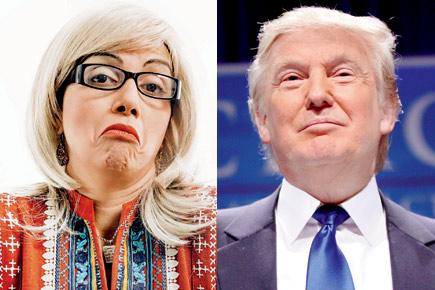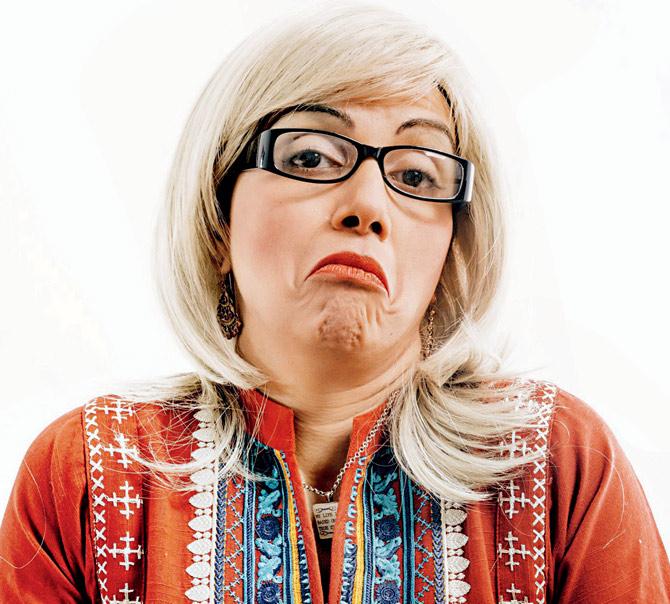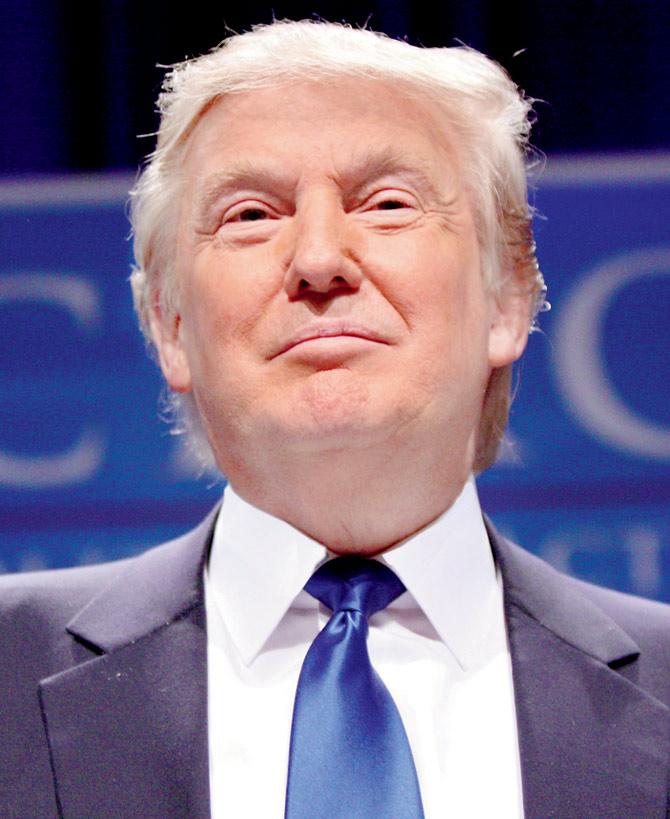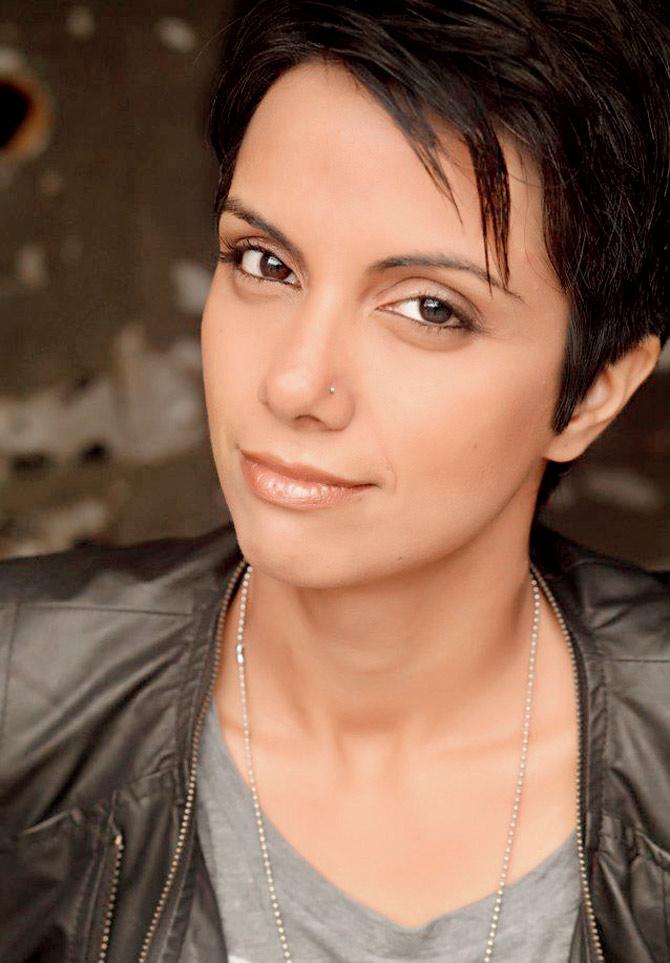What does a thick-skinned US Presidential candidate need to watch out for? His illegitimate Muslim daughter (You only wish it were true)

Ayesha Ali Trump is the fictional illegitmate Muslim daughter of US Republican and Presidential candidate Donald Trump
It is around midnight in rainy Chicago when we ring up Fawzia Mirza. The Pakistani-Canadian-American actor is driving back home after a chat with an unnamed Indian actor she wishes to cast in her upcoming feature film, Signature Move. It features a Pakistani Muslim lesbian (played by Mirza), who is taking wrestling classes and is in love with a Mexican woman. There is a lot in this film that Donald Trump might disapprove of. But not if Mirza gets to have her say.

Ayesha Ali Trump is the fictional illegitmate Muslim daughter of US Republican
Her recent mock-documentary is on Ayesha Ali Trump, the illegitimate daughter of the Republican Party’s Presidential candidate who called for "a total and complete shutdown" of Muslims entering the USA. Ayesha smirks like Trump, and chronically adjusts her generous golden mane. In her mannerisms, she is her father’s daughter, but when it comes to politics, she is "on the opposite end of the spectrum". Ayesha has her own website (www.ayeshatrump.com), Twitter handle (@AyeshaTrump). "I am Trump’s daughter and I am 1000 percent Muslim American," she proudly states.

Presidential candidate Donald Trump. Pic/Moll Jean/Charger Entertainment
Is Ayesha Ali Trump real? No. Are her claims as true as Trump’s? Absolutely, says Mirza, from whose figment of imagination came Ayesha.
"As an artist, the work I do breaks different stereotypes. When Trump made his December 7 speech, I asked myself, ‘How can a little brown girl speak out?’ Across communities in the USA, it felt as though his hateful rhetoric was thought of as a joke that will pass on, but that is not enough," says Mirza, who has previously made Kam Kardishian, a satirical web series on the fictional lesbian daughter of "the world’s most famous family".

Fawzia Mirza
Mirza was aware what she was up against. "Trump is theatrical and a caricature of a good politician. Unfortunately, he is a megalomaniac. Anytime a comedian makes a joke about him, he embraces it," she says. And Mirza is not alone in her observations. Ian Crouch recently wrote in The New Yorker that Trump is "impervious to comedy", and added rhetorically: What if nuking Godzilla only makes the monster stronger? With exit polls showing two-thirds supporting Trump, the situation, he writes, is too absurd to be made light of.
And thus was born Ayesha Ali Trump. "The one thing Trump cannot embrace is an illegitimate Muslim daughter. It would alienate his supporters," says Mirza. The Muslim Trump Documentary, which is replete with an emboldening soundtrack, takes you on a ride along with a conscientious Ayesha, played by Mirza, who works as an Uber driver. The interviewer asks her, "How many terrorists are there in your family?" Ayesha, after counting on her fingers, replies, "I have no terrorists in my family." Then what was she counting? "There are no terrorists in my Pakistani family, but there are three on my Trump side."
Her roots are repeating motifs in her work, like in Reclaiming Pakistan, a documentary featuring activist Sabine Mahmud, who was shot dead last year. Mirza’s parents, originally from India, headed to Karachi after the Partition, and from there arrived in Canada in the late-70s. Growing up in Nova Scotia, Mirza was one of the few brown girls at school. With her gamine style and dainty nose-stud, Mirza looks nothing like the obviously Asian Ayesha. "When minorities are depicted on TV, it is important to show them as safe. But minorities, are just as complex, weird and flawed. Ayesha is not meant to be a model Muslim."
Despite her best efforts, Ayesha Ali Trump will be a lesser star than her father. But that’s not Mirza’s point; Ayesha is not the perfect Muslim antithesis to Trump. "Trump makes for great television, but it is a threatening reality for gay people, Muslims, Arabs, South Asians — insert minority group here. He has opened the doors to publicly acceptable racism. People are wondering what’s going on, and this is my way of disagreeing with him," says Mirza, finally having reached home, and resting her head on a pillow.
 Subscribe today by clicking the link and stay updated with the latest news!" Click here!
Subscribe today by clicking the link and stay updated with the latest news!" Click here!










